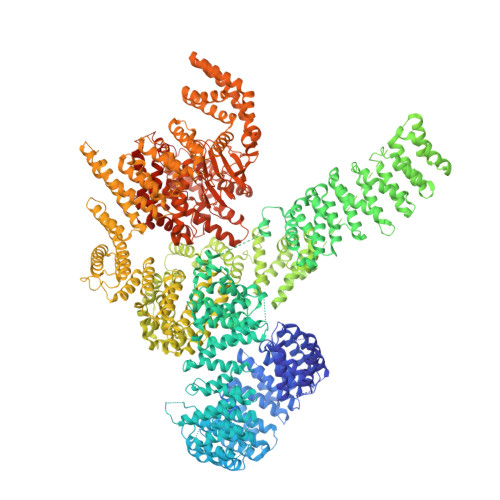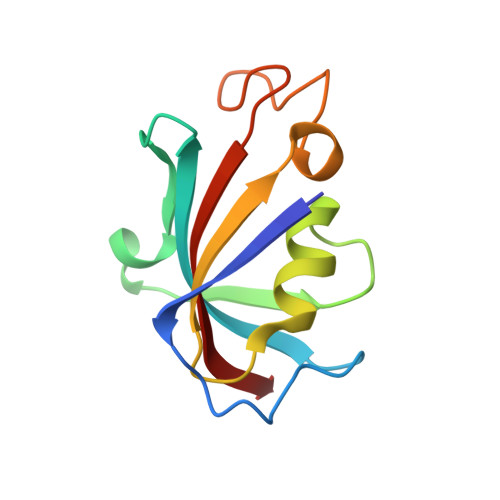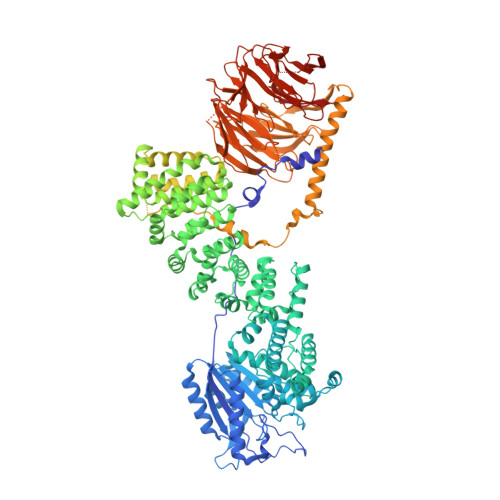Discovery of RMC-5552, a Selective Bi-Steric Inhibitor of mTORC1, for the Treatment of mTORC1-Activated Tumors.
Burnett, G.L., Yang, Y.C., Aggen, J.B., Pitzen, J., Gliedt, M.K., Semko, C.M., Marquez, A., Evans, J.W., Wang, G., Won, W.S., Tomlinson, A.C.A., Kiss, G., Tzitzilonis, C., Thottumkara, A.P., Cregg, J., Mellem, K.T., Choi, J.S., Lee, J.C., Zhao, Y., Lee, B.J., Meyerowitz, J.G., Knox, J.E., Jiang, J., Wang, Z., Wildes, D., Wang, Z., Singh, M., Smith, J.A.M., Gill, A.L.(2023) J Med Chem 66: 149-169
- PubMed: 36533617
- DOI: https://doi.org/10.1021/acs.jmedchem.2c01658
- Primary Citation of Related Structures:
8ER6, 8ER7, 8ERA - PubMed Abstract:
Hyperactivation of mTOR kinase by mutations in the PI3K/mTOR pathway or by crosstalk with other mutant cancer drivers, such as RAS, is a feature of many tumors. Multiple allosteric inhibitors of mTORC1 and orthosteric dual inhibitors of mTORC1 and mTORC2 have been developed as anticancer drugs, but their clinical utility has been limited. To address these limitations, we have developed a novel class of "bi-steric inhibitors" that interact with both the orthosteric and the allosteric binding sites in order to deepen the inhibition of mTORC1 while also preserving selectivity for mTORC1 over mTORC2. In this report, we describe the discovery and preclinical profile of the development candidate RMC-5552 and the in vivo preclinical tool compound RMC-6272. We also present evidence that selective inhibition of mTORC1 in combination with covalent inhibition of KRAS G12C shows increased antitumor activity in a preclinical model of KRAS G12C mutant NSCLC that exhibits resistance to KRAS G12C inhibitor monotherapy.
- Revolution Medicines, Incorporated, Redwood City, California 94063, United States.
Organizational Affiliation:





















